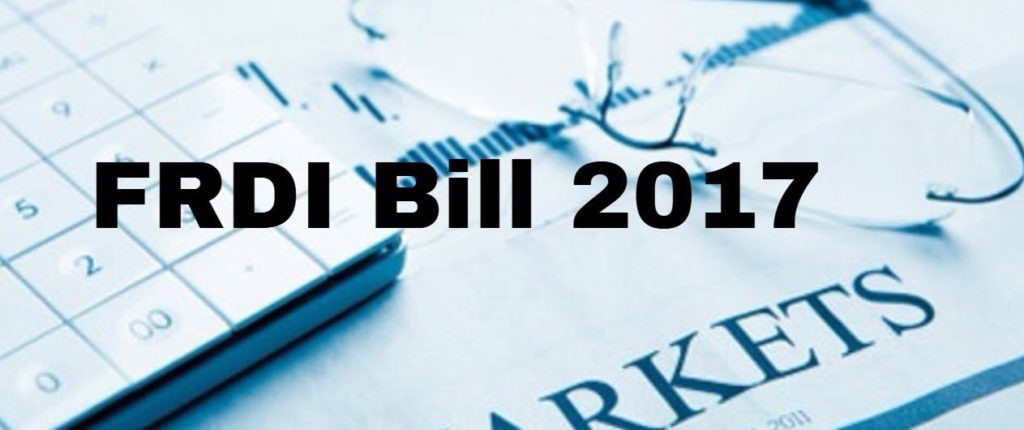Financial Resolution and Deposit Insurance Bill, 2017, or FRDI Bill is all set to tabled in the winter session of parliament. FRDI will be placed in the parliament together with the Bankruptcy and Insolvency Code, re-capitalization of public sector banks and Foreign direct investment in insurance sector. Government is pushing the FRDI bills with the motto of landmark reform in financial sector which includes Banking, Insurance, Pension and Mutual fund sector.
If believe on the government words, FRDI bills is the comprehensive resolution framework for financial sector to deal with bankruptcy situation in banks, insurance companies and financial sector entities.
FRDI Bills is drafted under chairmanship of Ajay Tyagi, additional secretary, Department of Economic Affairs, Ministry of Finance.
Read : Revise LFC Encashment Fair Rules For Employees, Income Tax
The up roarer on proposed FRDI bills is mainly on inclusion of ‘Bail-in’ clause in proposed FRDI Bill. ‘Bail-in’ clause which suggests that depositor money could be used by failing financial institutions to stay afloat.
Another controversial inclusion is that the Resolution Corporation (rescue body) which is proposed under the Bill, can use your money in case the bank sinks. The bill empowers the rescue body to decide the amount insured for each depositor.
Bail-in – This is opposite of Bail-out. In a bail-in, it is the debt of the firm that is either written off, or subject to a haircut or changes form. Now think your bank deposit is a liability or a debt for the bank, so can your money be used for a ‘bail-in’? Where there is a loss of bank deposit ? or Depositor will loose all their money.
Currently there is more risk on depositor money. Today, the Deposit Insurance and Credit Guarantee Corporation (DICGC) insures bank deposits up to Rs1 lakh. The FRC will also insure bank deposits and the insured limit will be set in consultation with the RBI.
Additionally banks are brought under strict norms where they need depositor consent to bail-in through this money. There is an additional protection for depositors because the bail-in can be invoked and your deposits be lost only if you have given your consent to the bank when you signed the deposit forms.
Bail-out – In a bail-out, an external agency helps out a distressed firm. We should more concerned being a taxpayers as bail-outs happen when financial firms fail without a process in place and tax payer money are being used to pay for the inefficiency of banks that made loans they cannot recover.
Read : Compare Fixed Deposit Rates (FD) Of Banks
Further, the public sector bank recapitalization option will remain there even after creation of FRC through FRDI bills.
